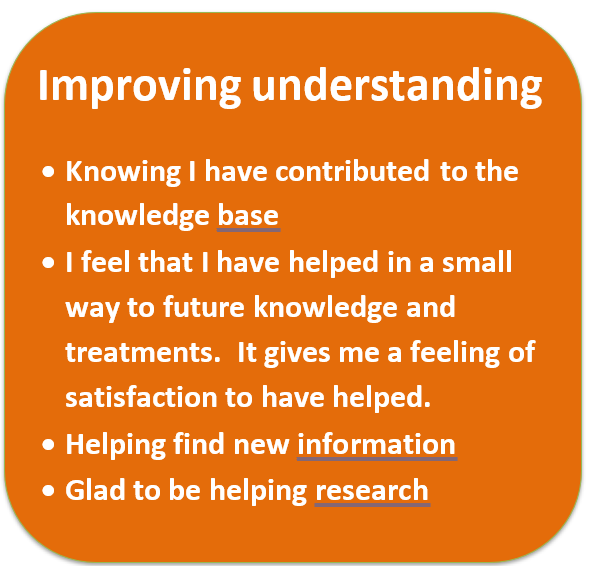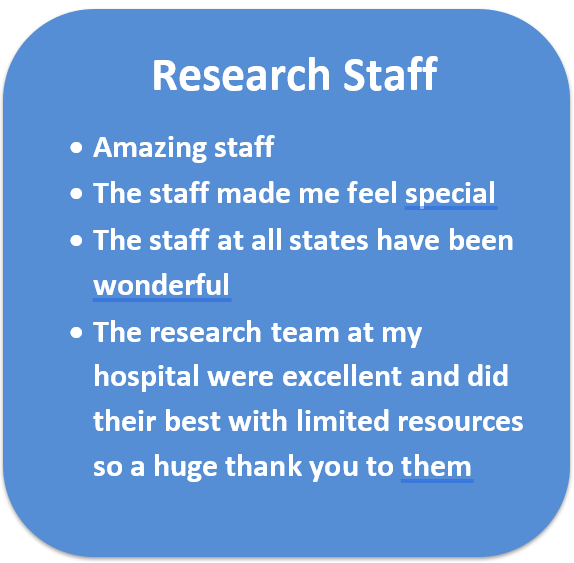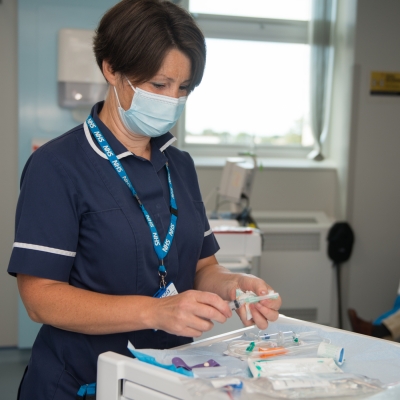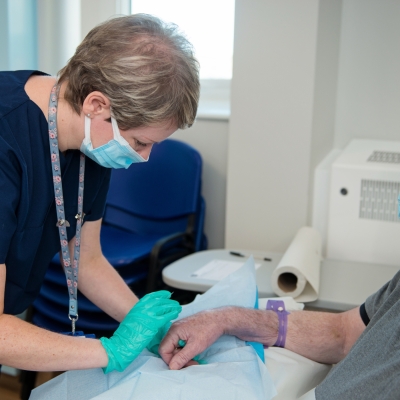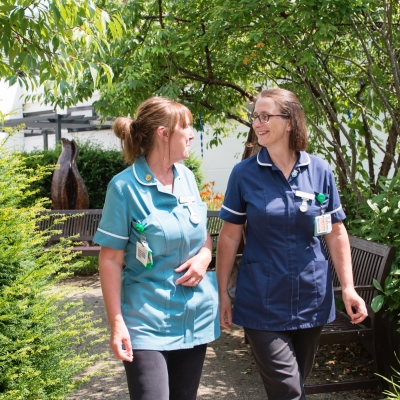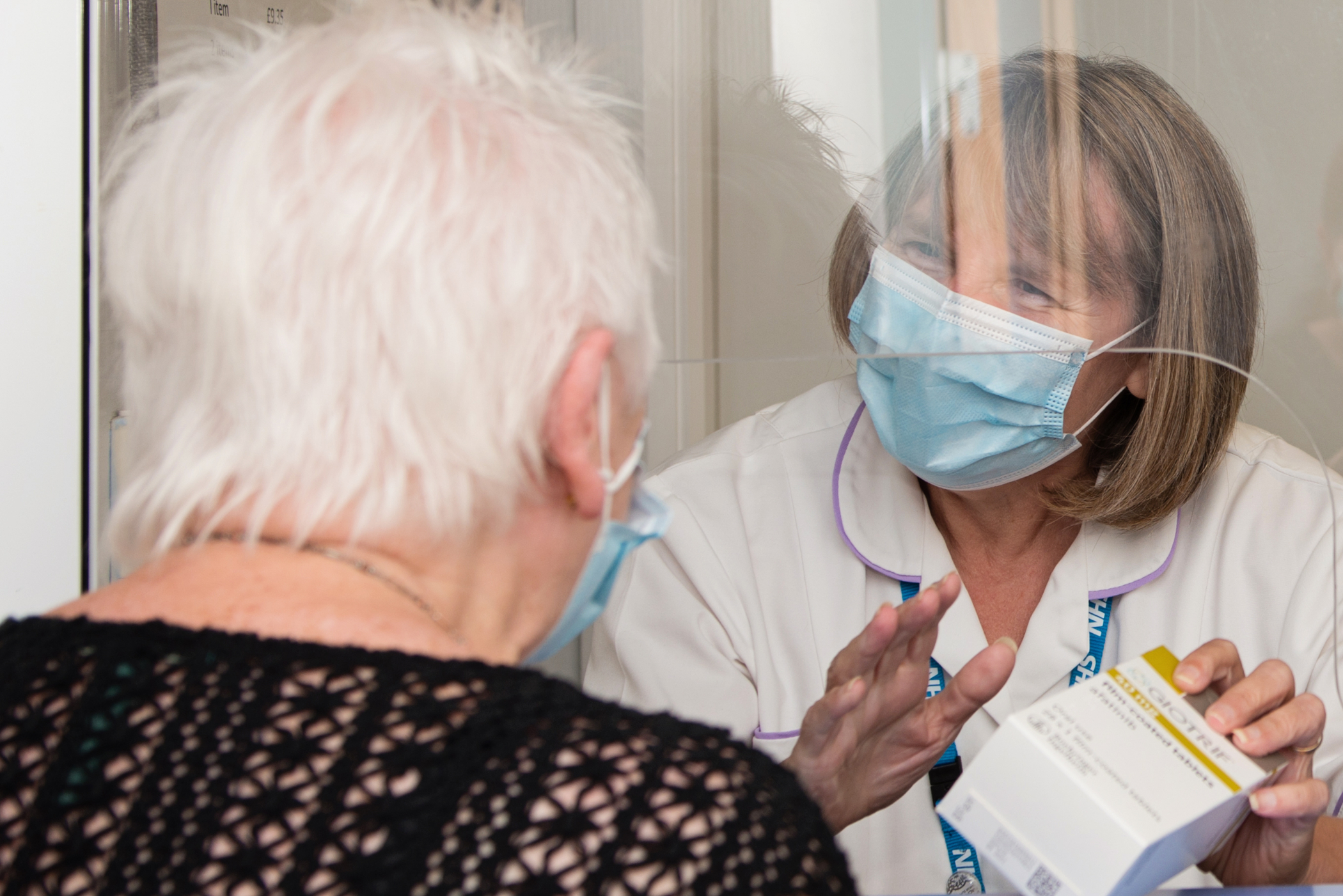 Mid Cheshire Hospitals NHS Foundation Trust takes part in a wide range of clinical research. On this page we explain a little about clinical research at the Trust and how you can take part. If you would like more information about clinical or health research, you can find more on the NHS Health Research Authority website.
Mid Cheshire Hospitals NHS Foundation Trust takes part in a wide range of clinical research. On this page we explain a little about clinical research at the Trust and how you can take part. If you would like more information about clinical or health research, you can find more on the NHS Health Research Authority website.
Clinical Research
Clinical research covers many areas and is undertaken to provide professionals with new knowledge and understanding about conditions and their treatment. In hospital it is common to see research being undertaken, especially in relation to how effective medications or treatments are, and the benefits that these have for patients.
Research carried out at Mid Cheshire Hospitals is often part of regional or national research programmes. These are often referred to as multi-centre studies. Multi-centre studies allow professionals to study much larger numbers of patients, which is more likely to provide strong results and evidence.
Research studies can be very different. Some might just be a questionnaire, others might look at the causes of a disease while some will be testing new treatments to see if they are effective. Here are some examples of different studies that Mid Cheshire Hospitals has participated in:
Example 1 - TIDES
TIDES: Prevalence of Depression and Anxiety in CF Patients and their Caregivers
This study was sponsored by The Leeds Teaching Hospitals NHS Trust. The aim was to determine the prevalence of anxiety and depression in people with (Cystic Fibrosis) CF and their parent caregivers. The reason the study was carried out was explained to patients and their parents/care givers:
Advances in the diagnosis and treatment of cystic fibrosis (CF) have led to a dramatic increase in survival rates. As a result, more research and clinical attention is turning towards issues that affect disease management and quality of life. In general, having a chronic illness is a risk factor for the development of depression and anxiety. However, little data assessing the frequency of these symptoms in patients with CF has been published.
Those who agreed to participate in the study were asked to complete two questionnaires during routine clinic visits.
Results: The local CF team that care for this patient population were already considering the issue of anxiety and depression. The results of the study proved that support in this area was needed and, as a result, a psychologist was recruited to the team locally in order to better support patients and families when they come to clinic.
Example 2 - MiQUiT
MiQuit: Evaluation of a tailored text message intervention for pregnant smokers
This study was sponsored by Nottingham University. This study aimed to see whether pregnant women who smoke were interested in receiving support to stop smoking by text message and whether it can help them to quit.
Those who agreed to participate were randomly placed into one of two groups with an equal chance of being in each. The first group received a leaflet aimed at helping them to stop smoking and received a 12 week text message support programme. The second group received the same leaflet but no text messages. This group was very important as it allowed the study to compare the groups and find out if there were any benefits to the extra support.
Results: All the participants have now completed the study and the results are being analysed by Nottingham University. Smoking in pregnancy is a priority area for the clinical department, with extra staff allocated to try to address the high rates we have in the area. Through running this research project, our research midwives have been directly supporting and informing the clinical team locally.
Example 3 - ESPAC 4
ESPAC 4: Combination versus single agent chemotherapy in resectable pancreatic ductal and peri-ampullary cancers
This study is jointly sponsored by the University of Liverpool and the Royal Liverpool and Broadgreen NHS Trust. It is known that, after a growth in the pancreas has been removed, extra treatment with chemotherapy can stop further growths but nobody knows for certain whether it is best to use one drug or a combination of drugs. This study has been designed to find out whether one type of drug (chemotherapy) is more beneficial than a combination of two drugs when given after operation for patients with the particular conditions being studied (adenocarcinoma of the pancreas or peri-ampullary carcinoma).
Those who agree to take part are randomly allocated to either receive one drug (Gemcitabine) or a combination (Gemcitabine & capecitabine). To make the test fair, the groups are decided by chance and then both groups are monitored closely. During the trial participants are examined every three months for up to 60 months to see how they are doing. Additional blood and urine tests may also be requested for use in further scientific studies investigating these cancers. A very important aspect of the study involves assessing how the disease and treatment affects quality of life so participants are asked to complete a questionnaire that asks about how they are feeling and what activities they are able to undertake. This questionnaire is repeated when they consent to enter the study and then at 3, 6, 12, 18 and 24 months afterwards, followed by annual assessments up to five years.
Results: This study is still collecting data and it is hoped that the results will inform practice in the future.
Taking Part in Research
Research within a hospital setting tends to be carried out for patients with specific conditions. For research to take place, a rigorous process of ethical approval is undertaken, to make sure that research projects are safe. Organisations have to provide patients with information about the study, for example what to expect in their treatment and how long the study will be carried out for.
If Mid Cheshire Hospitals has enrolled on a research programme that matches a condition that you are being treated for then a member of the medical, nursing or research team may approach you to discuss taking part in the research programme. You will be offered information and details about how the research is being carried out and given time to think over whether or not you would like to take part. This is entirely voluntary and if you would prefer not to take part your normal treatment plan will not be affected in any way. If you choose to take part in a study then you will be asked for written consent. The results of research activity and any future publication of the results are kept anonymous.
You can find out more about taking part in research from the following link:
Research Study Outcomes
Unfortunately for the people taking part in research, there is no guarantee that they will personally benefit. In some cases where an alternative drug or procedure is being tested, there is the possibility that you would benefit. However, in others, the research is simply aimed at gaining a better understanding of, for example, the effect and side-effects of the drug. We usually find that patients are willing to take part as they can see the wider benefit to the country as a whole from development of better cures for all sorts of disorders.
Patient Story
This is a story about Antonica and her family and how research kept them together.
Antonica took part in our RECOVERY trial (Randomised Evaluation of COVID-19 Therapy)
PRES - Participant in Research Experience Survey
PRES is an annual nationally standardised survey used to collect adults and children’s views and experiences of participating in NIHR supported research.
PRES was developed by the NIHR Clinical Research Network to demonstrate to research participants that their contribution is valued, and to help make meaningful improvements to research based on people’s real-life experience.
PRES is the largest survey of its kind, with all 15 local Clinical Research Networks across England supporting it.
Participant Feedback
|
|
|
|
|
|
We asked participants what was positive about their research experience ...
